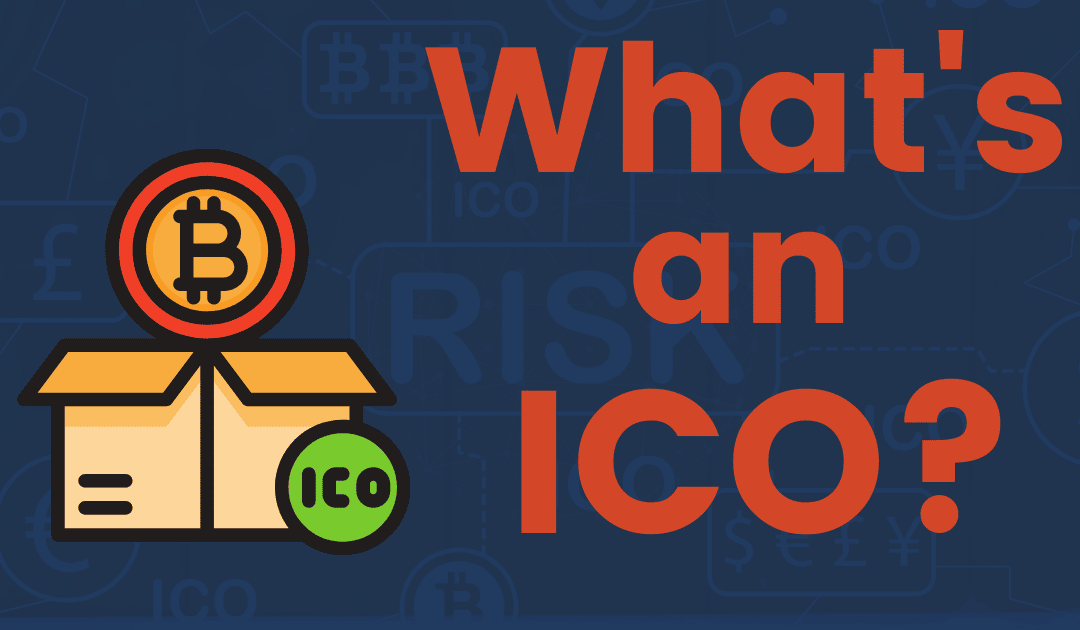What is an Initial Coin Offering (ICO), and How Does it Work?
In recent years, cryptocurrency has captured the attention of investors, tech enthusiasts, and even governments. One concept that has become popular in this space is the Initial Coin Offering, or ICO. But what exactly is an ICO, and how does it work? Let’s break it down in simple terms.
What is an ICO?
An Initial Coin Offering (ICO) is a fundraising method that companies, particularly startups in the blockchain and cryptocurrency industry, use to raise capital. Instead of seeking funds from traditional investors like venture capitalists, they turn to the general public. The company creates and sells its own cryptocurrency, often referred to as “tokens” or “coins,” in exchange for established cryptocurrencies like Bitcoin or Ethereum, or even fiat currencies (like the U.S. dollar).
In simpler terms, an ICO is somewhat like an IPO (Initial Public Offering) in the stock market, where companies sell shares to raise money. However, in an ICO, the company offers digital tokens instead of shares.
How Does an ICO Work?
The process of an ICO can be broken down into several steps:
Concept and Whitepaper
The company or team behind the ICO first develops an idea or product that they believe can succeed in the market, typically in the blockchain or crypto space. They then create a whitepaper, which is a detailed document outlining the project’s goals, the technology behind it, how the funds will be used, and how the token will function.
Token Creation
The next step is to create the tokens that will be offered to investors. These tokens are often built on an existing blockchain like Ethereum, using smart contracts to manage the token issuance and transfers.
Pre-ICO Sale
Some ICOs conduct a pre-sale phase before the official ICO launch. During this phase, early investors can buy tokens at a discounted rate. This is similar to an early-bird special that rewards those who invest first.
ICO Launch
Once the ICO is live, the company opens it up to the public. Anyone interested can buy tokens, usually in exchange for cryptocurrencies like Bitcoin or Ethereum. The ICO typically runs for a fixed period, after which the tokens are distributed to the buyers.
Post-ICO and Listing
After the ICO is completed, the tokens are listed on cryptocurrency exchanges, allowing investors to trade them on the open market. The project team uses the funds raised to develop their product or service, and investors hope that the value of the tokens will rise as the project grows.
Why Do Companies Use ICOs?
The ICO model became extremely popular because it allows startups to bypass traditional financing routes, which can be lengthy and complex. Through an ICO, companies can access capital from a global pool of investors, regardless of their geographical location. Additionally, the process is often faster and has fewer regulatory hurdles (though this is changing as governments seek to regulate the space).
Another benefit of ICOs is that they allow people who believe in a project to get involved early. Investors are not just contributing money; they are betting that the project will succeed, and their tokens will increase in value.
Risks and Considerations
While ICOs offer exciting opportunities, they are also high-risk. Since anyone can create a token and launch an ICO, the space has attracted scams and poorly thought-out projects. Some ICOs have been criticized for raising vast amounts of money without a clear roadmap or product, leaving investors with worthless tokens.
To minimize risk, potential investors should do their due diligence by:
Reading the whitepaper carefully
Make sure the project has a viable plan and clear use for the tokens.
Checking the team’s credentials
A strong, experienced team is crucial to the success of any project.
Assessing community and expert opinions
Joining discussions on platforms like Reddit, Telegram, and crypto-specific forums can provide valuable insights.
The Future of ICOs
As regulatory frameworks evolve, the ICO landscape is likely to change. Countries like the U.S., China, and others are introducing guidelines to protect investors and reduce fraudulent activities. This means that future ICOs may be more tightly regulated, but also more trustworthy.
In conclusion, an Initial Coin Offering is a novel way for blockchain-based projects to raise funds by selling digital tokens to the public. While it offers exciting potential for both startups and investors, it’s essential to approach ICOs with caution, conducting thorough research before participating. With the right understanding and careful consideration, ICOs can be an innovative investment opportunity in the ever-expanding world of cryptocurrencies.

